What If Every Decision You Make Creates a New Universe?
What If Every Decision You Make Creates a New Universe?
Introduction
I often wonder what would’ve happened if I took the other path—the job I didn’t accept, the friend I never called back, the city I almost moved to. What if those decisions didn’t just shape my life… but split it? Imagine if each choice created a new universe. One where you chose differently. One where things turned out better. Or worse. Or simply, stranger.
This is more than a thought experiment—it’s a theory rooted in actual physics. Known as the Many-Worlds Interpretation, this idea suggests that with every decision you make, a new version of reality is born.
Let’s explore this fascinating possibility and what it means for you, me, and everyone else.
What if every decision splits reality into multiple paths?
According to the Many-Worlds theory, every time something could go two ways, reality does both—each in its own new universe. You chose tea over coffee? In another universe, you’re sipping espresso. You stayed single here? Somewhere else, you married your high school crush.
This idea comes from quantum physics, where particles behave in multiple ways at once until observed. Scientists suggest that when one outcome becomes real in our universe, the other outcomes still happen—just in separate, equally real timelines.
So yes, that means there could be infinite yous out there—some happier, some sadder, some wildly unrecognizable.
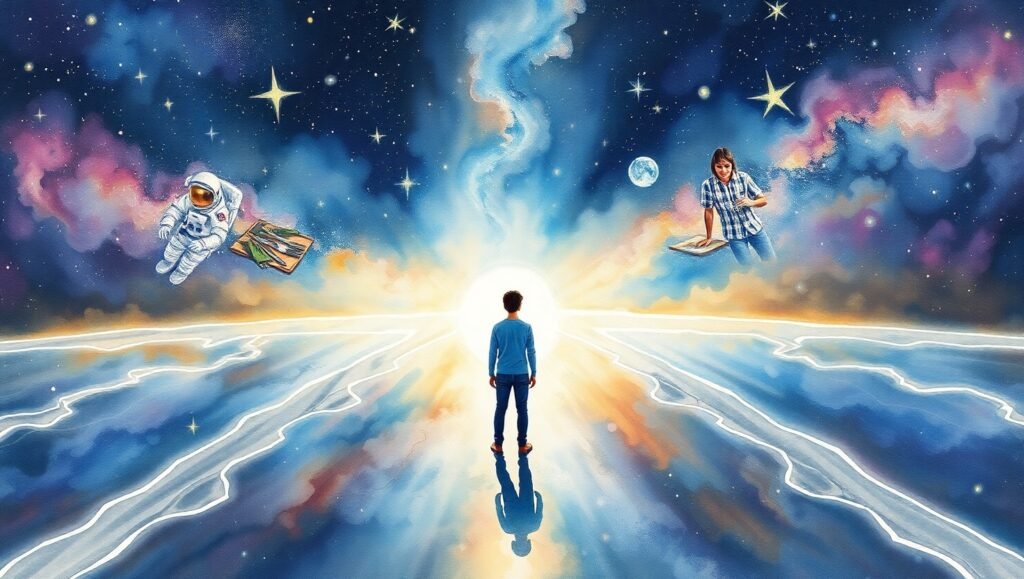
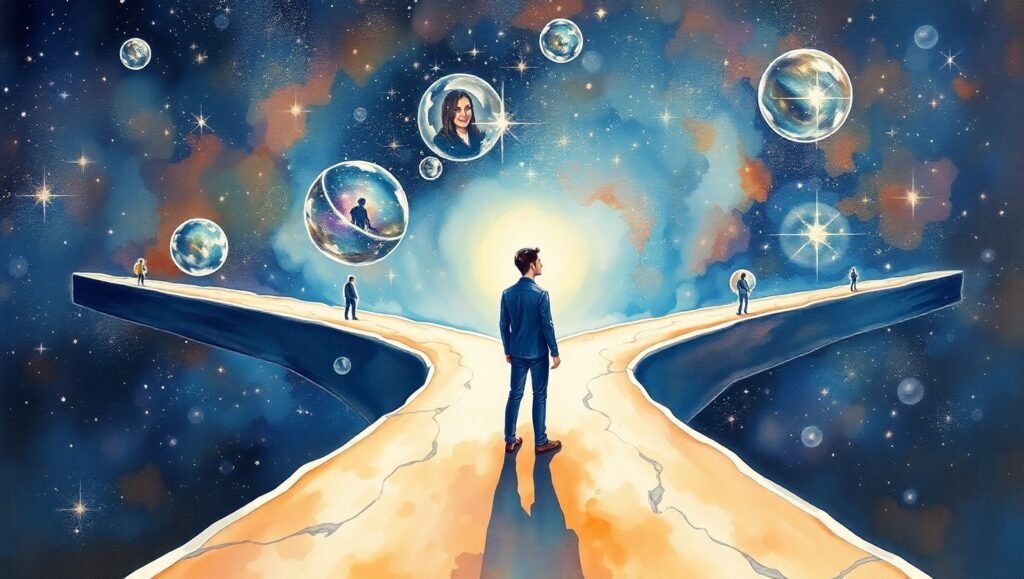
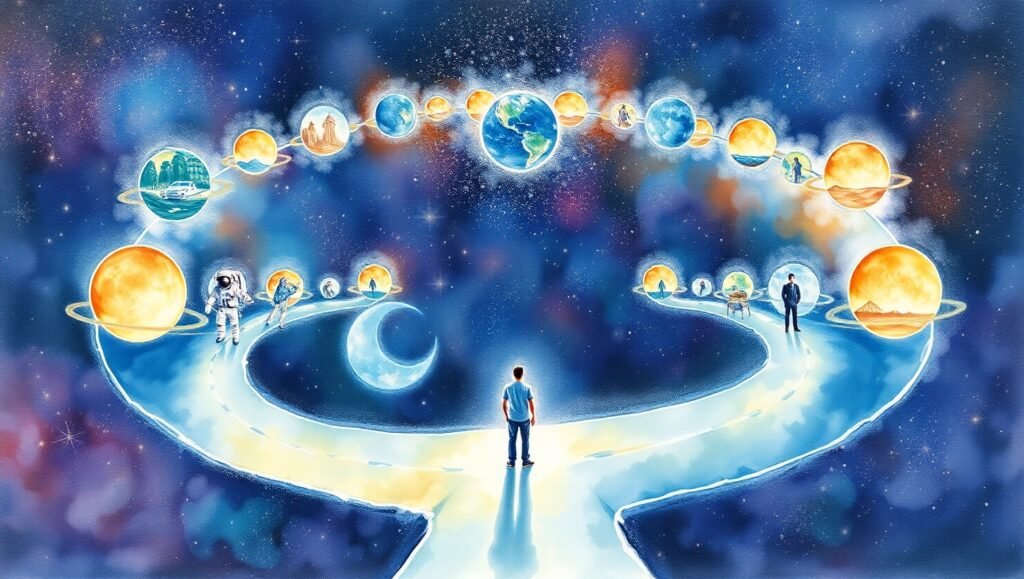
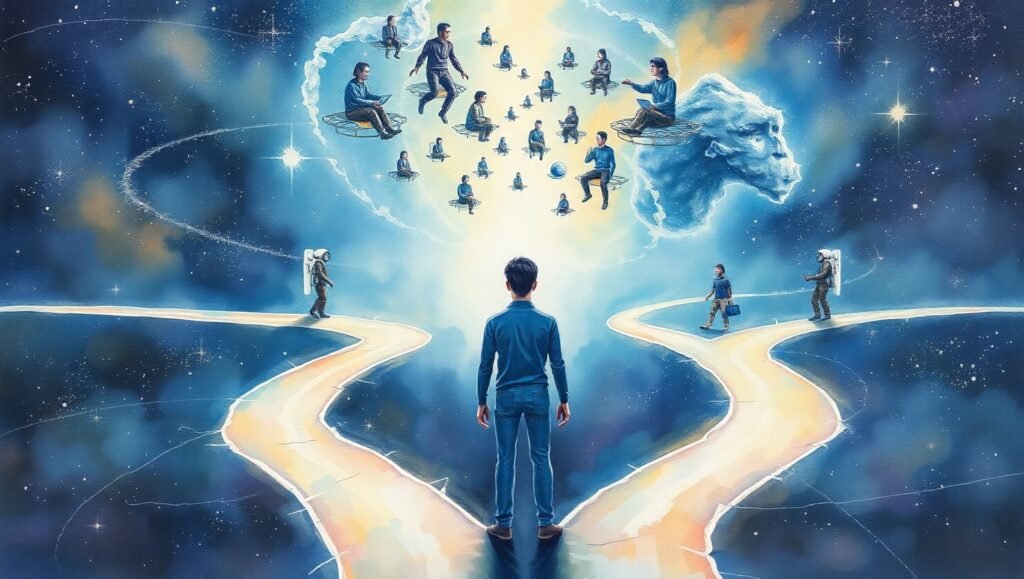
Our Thoughts
At EdgyThoughts, we love questions that don’t have easy answers. And this one—where every choice splits the cosmos—might be one of the biggest. It makes us rethink what choices really mean, and whether regret, fate, and destiny are even relevant.
Whether or not we can prove it, the idea is oddly comforting: the “you” that messed up that job interview? Another “you” nailed it. And if nothing else, it forces us to see life as a constant creation of possibility.
Pros and Cons of Believing in Multiple Universes
| Pros | Cons |
|---|---|
| You never miss out—another “you” got it right. | Could lead to not taking responsibility. |
| Regret softens—you always did something right. | No way to contact or confirm alternate yous. |
| Inspires creativity and big-picture thinking. | Can be overwhelming to think about endlessly branching lives. |
| Feels exciting: endless versions of your life exist. | Philosophically challenging: what is the real you? |
Can we ever prove that alternate versions of ourselves exist?
Not yet. The science behind Many-Worlds is grounded in real math, but no experiment has directly proven these other universes exist. Some physicists argue that evidence may eventually show up in tiny quantum anomalies. Others think we may never be able to test it—because the moment a new universe forms, it becomes inaccessible from ours.
That said, quantum computing, AI simulations, and theoretical math are all pushing us closer to answers.
Do our choices still matter if every possibility happens anyway?
Absolutely. Your experience still matters—you’re the one living it. Yes, other versions of you might be living different lives, but you’re the only one who can live this one. Your feelings, relationships, and consequences are very real.
In fact, the theory may make your decisions more meaningful: each one writes a brand-new world into existence.
Key Points You Should Know
- The Many-Worlds Theory is a real, scientific idea—not just sci-fi.
- Every decision might create a parallel timeline.
- Each version of you is equally real in its own universe.
- It can’t be tested yet—but it’s taken seriously by physicists.
- This idea redefines regret, fate, and even free will.
Detailed Explanation of Each Point
1. The Many-Worlds Theory is a real idea.
First proposed by physicist Hugh Everett in 1957, it says all possible outcomes of quantum events actually occur in separate, branching realities.
2. Every decision might create a new timeline.
From picking breakfast to deciding who to marry—each decision could create two paths, both taken by different versions of you.
3. Every version of you is equally real.
If this theory is correct, there’s not one “main” you. Just infinite versions, all living their own truths.
4. We can’t test it—yet.
Current technology can’t detect alternate timelines. But quantum computers and theoretical physics might one day crack open the door.
5. The idea changes how we view life.
If every choice matters that much, then we’re not just living—we’re creating realities, constantly. That’s both exciting and humbling.
What We Think
Whether it’s true or not, we believe this idea is worth considering. Even if we never visit another timeline, believing in infinite possibilities can change how you approach your day. It makes each choice feel less like a trap and more like a doorway. Every time you wonder “what if,” remember—you might be living one version of the answer, and somewhere else, another version of you is doing the rest.
It’s a theory, yes. But it’s also a mindset. One that reminds us how powerful our decisions really are.
🔗 Related Articles from EdgyThoughts.com
What If Mirrors Show a Parallel World?
https://edgythoughts.com/what-if-mirrors-show-a-parallel-world/
🌐 External Resource
Want to learn more about the science behind Many-Worlds?
Check out the Wikipedia page on the Many-Worlds Interpretation
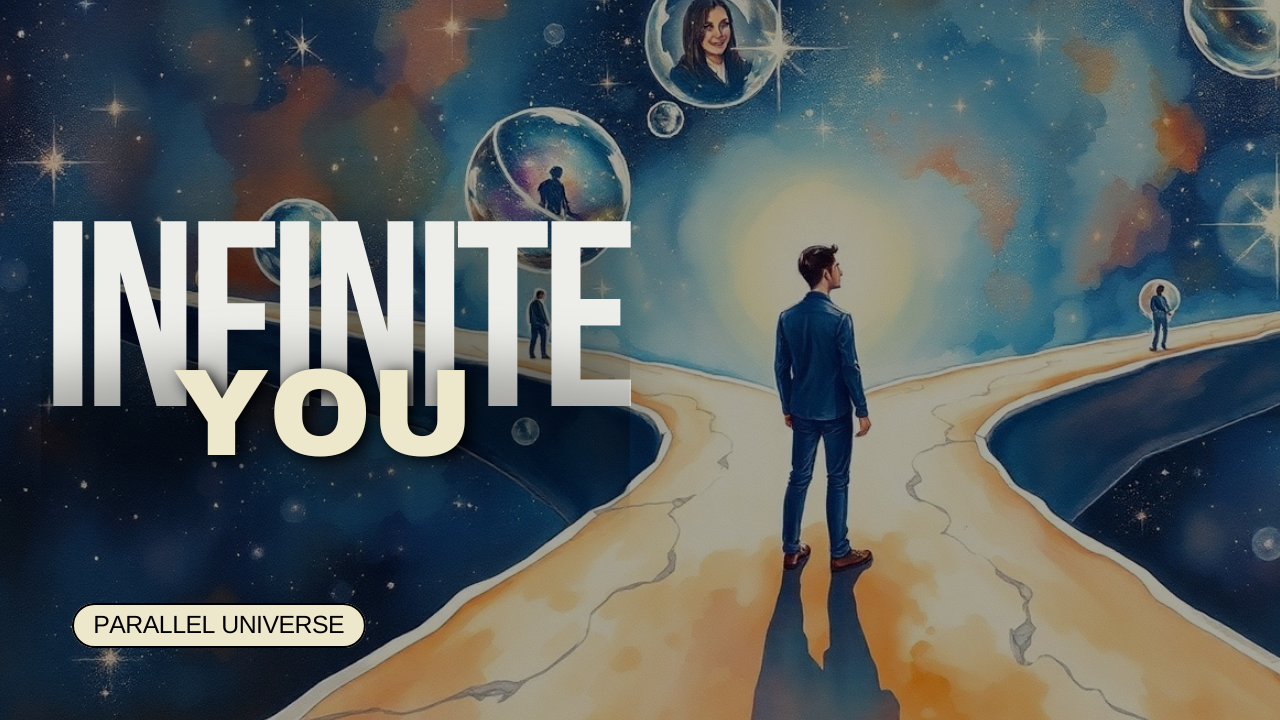
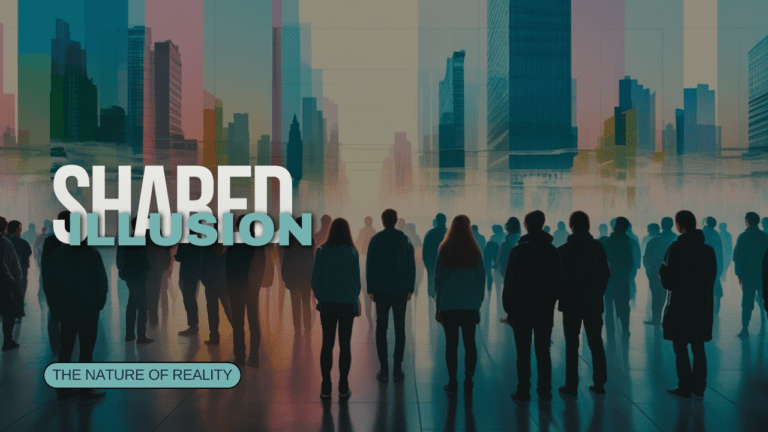
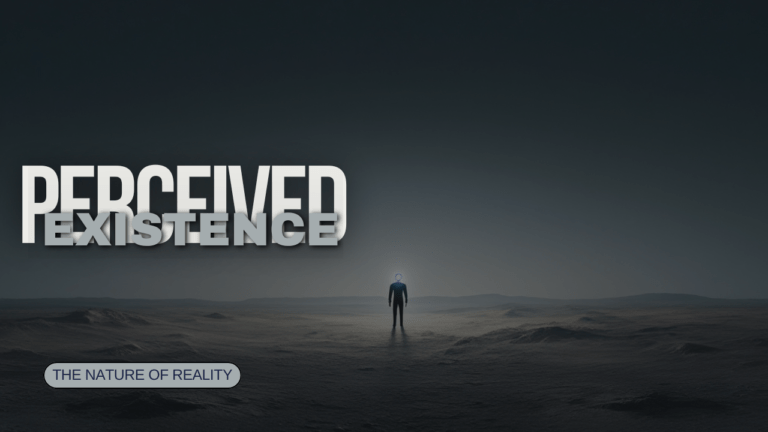
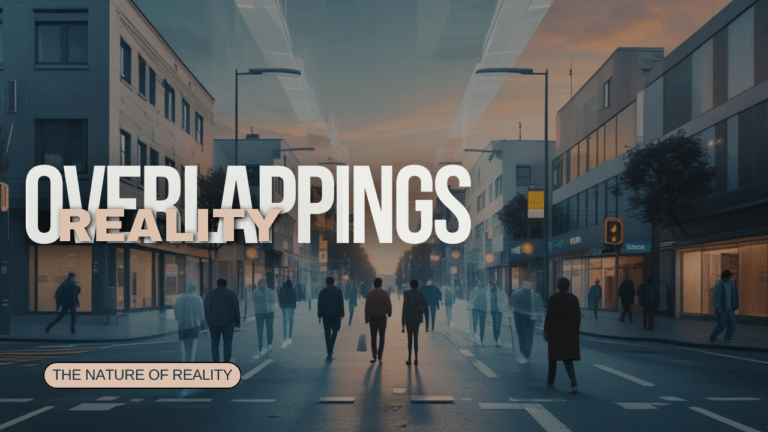
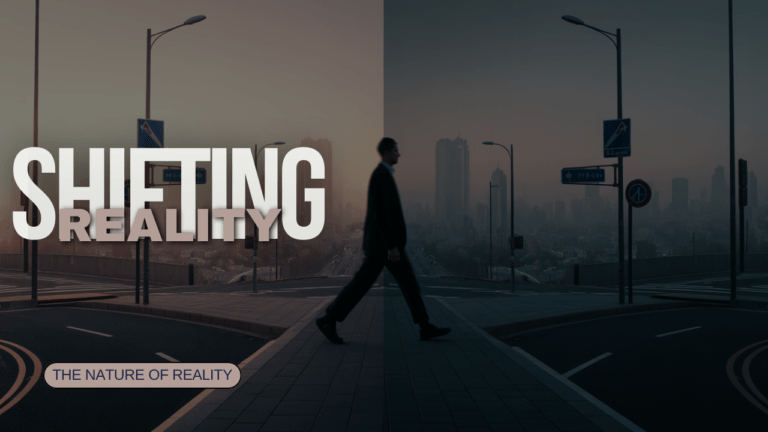
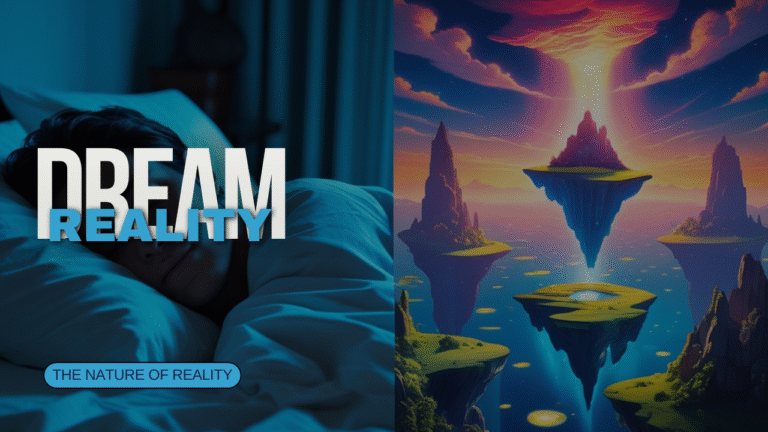
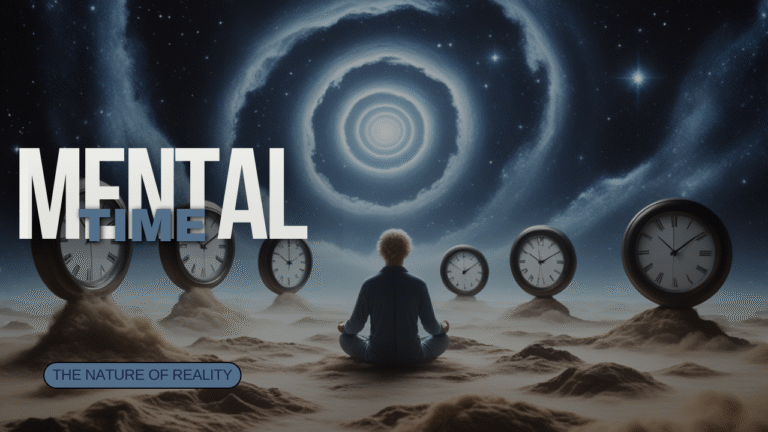
One Comment
Comments are closed.